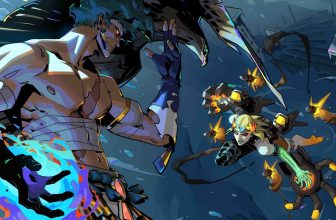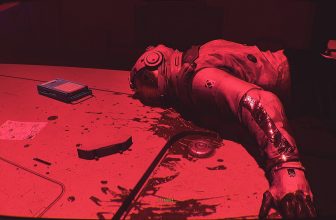Baldur’s Gate 3 publishing director Michael Douse says it’s not necessarily true that enormous game budgets are a terrible thing, but the “public company model is broken” in the entertainment industry, anyway.
This comes via a thread on Twitter, where Apogee Software co-founder and Duke Nukem co-creator George Broussard responds to a recent quote from Rockstar co-founder Dan Houser, who expressed he thinks gaming could “either go somewhere really interesting or somewhere that gets overly focused on making money.”
Broussard says this is nothing new. “Once games (the 360 era) started costing $30 million to make, vs $3-5 million in the 2000ish era, then jumped to $100-250 million – it was all over for originality and risk taking,” he argues. “Publishers can’t afford to take a risk with that much money. This is why you’ve seen AAA go to bi-yearly sequels on the top 20-25 IP and why you see so few new games. Nobody can afford to take the risk anymore.” He adds that although this has “been the case for 20 years,” it’s still “WORSE today with the mega-costs of a tentpole AAAA game.”
I don’t think it’s actually true that big budget = shit. It just takes literally everyone involved to be on the same mission, which in 9/10 times is not the case. You can find an audience (even a necessarily large one) easier than ever now, but it’s people in the trad “product…November 24, 2025
These days, Douse argues, it’s “easier than ever” to “find an audience (even a necessarily large one).” However, “it’s people in the trad ‘product pipeline’ that are the problem. They either dont understand that or see it as a risk to their business model, or they’re unable to parse that by investors.”
He continues: “The public company model is broken in entertainment at a time where it should be easier than ever to connect audiences to creators. Half of it is dim witted self preservation and the other half is genuine lack of vision & leadership (or institutional stupidity).”
Publicly traded companies – like Nintendo, Microsoft, and Rockstar Games owner Take-Two Interactive – can face a lot of pressure to appease shareholders and make sure their financials look strong. After EA announced that it’s set to go private following a buyout by investment firms Affinity Partners and Silver Lake, and Saudi Arabia’s Public Investment Fund (PIF), BioWare veteran Mark Darrah suggested that in the long term, “it’s probably good for whatever EA still exists after all the dust settles, because by being a private company, they are able to approach their financials in the way that best suits the way the business is being run.”
Things are tough out there for all sorts of gaming companies, though – the mass layoffs and studio closures we’ve seen over the last few years are indicative of that. Hopefully the issues Douse points out won’t be such a problem forever.
Baldur’s Gate 3 publishing lead slams Square Enix’s push to automate 70% of debugging with AI: “The idea that QA people can be replaced at a large scale is stupid.”








